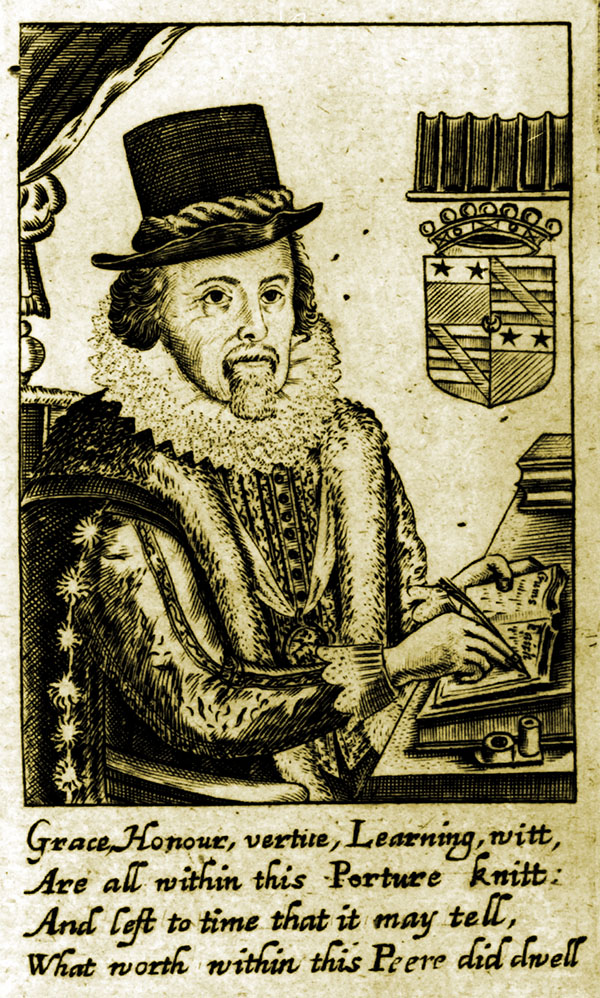Cryptic Titles
“So I may without superstition be buried in St. Alban's habit or vestment.”
Francis Bacon: Letter to King James I after Creation of the title Viscount St. Alban.
Francis Bacon was given the unique and cryptic titles of Baron Verulam of Verulam and Viscount St Alban.
A title normally refers to a place, and the place name is preceded by 'of'. Moreover, a place name is never used twice as a place name, as this would be nonsensical.
The double use of 'Verulam' in the first title means that the first 'Verulam' is an adjective describing the Baron (Francis Bacon), whilst 'of Verulam' refers to the place, the Belgic capital Verlamion and Roman town of Verulamium. As a Latin adjective, 'Verulam' means 'Spear-shaker'. In other words, Francis Bacon is the Spear-shaker (or Shakespeare) of Verulam.
Francis Bacon's second title name is that of the saint (Saint Alban), not the place (St Albans). There is no 'of' before the name, and the name has no 's' on the end. In other words, Francis Bacon was the second St Alban. St Alban is known as the founder and First Grand Master of English Freemasonry – Craft Freemasonry in terms of the first St Alban, and Speculative Freemasonry in the case of the second St Alban. Both saints were martyred – the first physically, the second politically.

